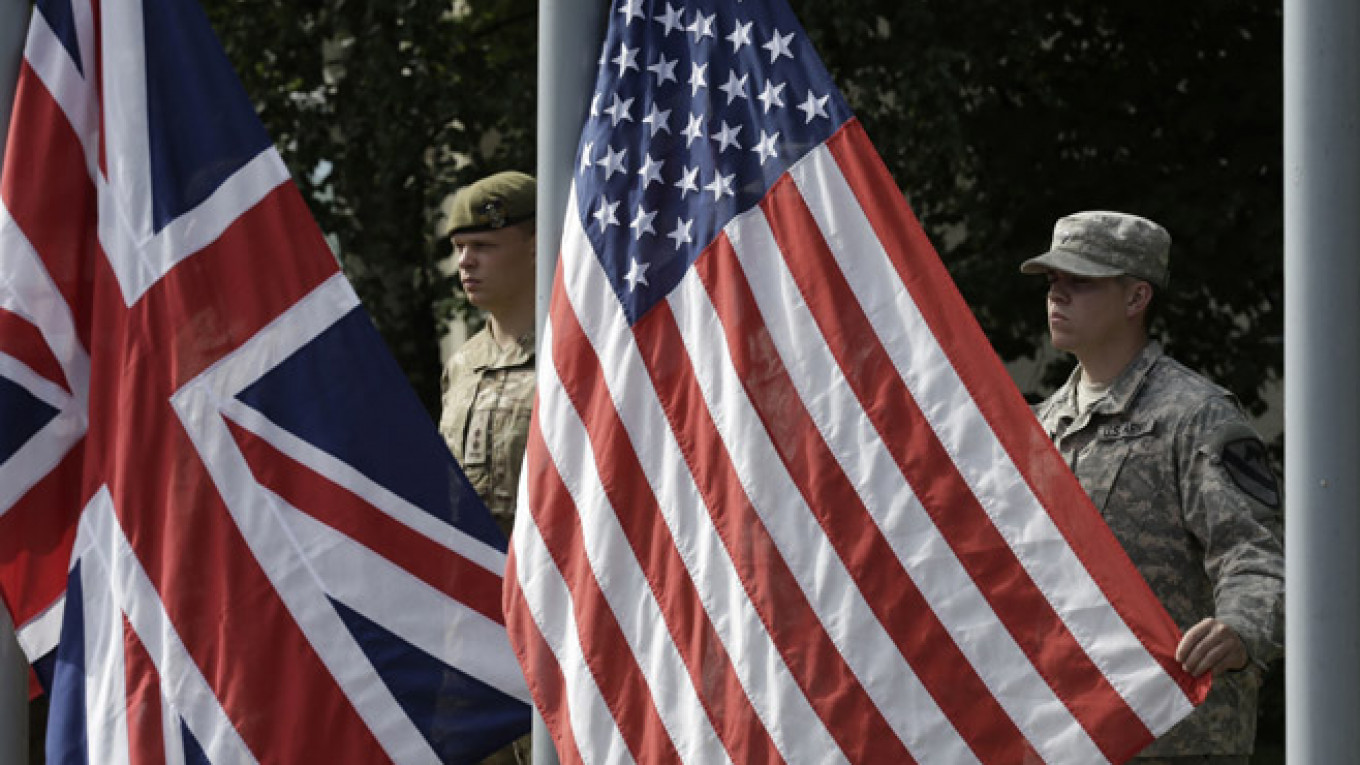Relations between Russia and the West have reached rock-bottom and questions are being asked about what went wrong.
Many people, not only in Russia, blame the West for ignoring Russia's legitimate concerns, including the fear that NATO would use Ukraine to threaten Russia. President Vladimir Putin himself justified Crimea's annexation as a way of keeping NATO from "setting up camp in our backyard."
In this view, NATO unreasonably antagonized Russia by establishing relationships with its former Soviet satellites, and should have done a better job at cooperating with Moscow on the fraught issue of the European missile defense system.
But this is just one way of looking at recent history. NATO's involvement in eastern Europe and the West's hesitant embrace of Russia following the Soviet Union's collapse were natural steps to take at the time.
Following the Soviet Union's dissolution, the West was willing to help Russia join the community of nations and effect democratic reforms. Russia's conversion to democracy, however, following seven decades of confrontation played out in covert operations from Cuba to Afghanistan.
The West consequently remained cautious when dealing with Moscow. Eastern Europeans, having experienced bloody Soviet oppression first hand, were eager to cement their national security with NATO membership, rather than rely on the Kremlin's professions of goodwill.
Of course, the world also celebrated the Soviet Union's collapse not only because it was the death of a political enemy, but for the sake of Russians themselves, who would no longer be oppressed, subjected to mind-numbing propaganda, banned from traveling abroad and condemned to poverty.
But even during the 1990s, a time that many among the intelligentsia consider the flowering of Russian democracy, there were some alarming signs for post-Soviet states weighing just how close they should get to their former overlords.
Squares in Russian cities remained bedecked with statues of Communist leaders and Lenin's mummified body still lay in Red Square. The Soviet past, including the Bolshevik and Stalinist terror, had been admitted but not repudiated, and no constitutional safeguards were in place to prevent the communist state's return. Russia's two brutal wars in Chechnya made Eastern Europeans all the more eager to join NATO.
Of course, it never had to be like this.
In modern society, an open and transparent system of free enterprise is seen as the best bulwark against tyranny. That's because economic success helps build up an independent citizenry and creates alternative sources of power, preventing its excessive concentration in the hands of the state. Modern business, moreover, helps ensure world peace by creating important commercial ties between nations.
The West did not prevent Russia from achieving a system of free enterprise after the Soviet Union's fall. As a matter of fact, the pain that Western sanctions are now causing the Russian economy is the best proof that NATO and the West were not out to bleed Russia after the Soviet Union's fall. When Russia emerged as an independent state, it was not treated as if it had just lost a war — certainly not the way Germany was treated after its defeat in World War I.
However, Russia botched its privatization program, putting its most valuable assets into the hands of politically connected oligarchs, who owed their economic success to corrupt bureaucrats. The bureaucracy continued to play a key role in the economy, hampering the development of the private sector, subverting free enterprise and in the end leading to the re-nationalization of large parts of the economy. Instead of a free market economy, Russia has built a monstrously corrupt, lawless and murky state-dominated kleptocracy.
Nevertheless, even with its dysfunctional state capitalism, Russia has achieved unprecedented and fairly broad prosperity. Russians have more disposable income than ever before, they have access to quality Western goods and can travel anywhere in the world. The West and NATO were not at war with Russia when it emerged as a democratic nation and, if they were, the landscape would look far different than it does today.
Alexei Bayer, a native Muscovite, lives in New York. His detective novel "Murder at the Dacha" was published by Russian Life Books in 2013.
A Message from The Moscow Times:
Dear readers,
We are facing unprecedented challenges. Russia's Prosecutor General's Office has designated The Moscow Times as an "undesirable" organization, criminalizing our work and putting our staff at risk of prosecution. This follows our earlier unjust labeling as a "foreign agent."
These actions are direct attempts to silence independent journalism in Russia. The authorities claim our work "discredits the decisions of the Russian leadership." We see things differently: we strive to provide accurate, unbiased reporting on Russia.
We, the journalists of The Moscow Times, refuse to be silenced. But to continue our work, we need your help.
Your support, no matter how small, makes a world of difference. If you can, please support us monthly starting from just $2. It's quick to set up, and every contribution makes a significant impact.
By supporting The Moscow Times, you're defending open, independent journalism in the face of repression. Thank you for standing with us.
Remind me later.






